Introduction
The process for rezoning your property varies depending on the municipality or county which has jurisdiction. However, there are statewide rules that govern the process. This article focuses on the rules applicable to municipalities. Unless your property is within unincorporated county jurisdiction, you will need to go through the applicable city with jurisdiction to apply for rezoning. This is not a quick and easy process, and your options should be carefully weighed with the help of a qualified land use attorney who understands the nuances involved.
What is Zoning?
In Florida, zoning is generally a legislative function of cities and counties. It is a land development regulation that places reasonable, public-interest-serving restrictions on the use of real property. Cities, in particular, have home rule authority under Florida’s Constitution adopted in 1968. Under that authority, and implementing statutes in Ch. 166, Florida Statutes, cities have wide latitude to adopt land development (zoning) regulations that say where and how properties can be developed and used. Pursuant to F.S. 163.3194, these zoning regulations must be consistent with the future land use element of the city’s adopted comprehensive plan, which functions as the city’s constitution for purposes of future land development and use.
Only the duly elected legislative body of the city, usually called the City Commission or City Council, can adopt zoning regulations by ordinance.[i] The adoption process must follow the detailed procedures set forth in F.S. 166.041(3). To summarize the process, adoption of a zoning ordinance usually will require two separate publicly-noticed hearings.
Zoning ordinances typically create a list of classifications, such as ‘Mixed Use or ‘Single Family Residential’ and within each classification, there is typically a list of permitted and/or conditional (or ‘special exception’) uses. For any given zoning classification, permitted uses are those which are allowed as of right, and the property owner needs no additional permission for that use. Conditional uses are exceptions that are allowed on a case-by-case basis, if certain specified conditions are satisfied. Conditional uses may only be approved after following the procedural requirements in F.S. 166.041(3).[ii]
Zoning Amendments
Cities have significant discretion to grant or deny an application for rezoning.[iii] A decision on a zoning amendment application is valid if it strictly adheres to the procedures set forth in F.S. 166.041(3), is consistent with the comprehensive plan, and accomplishes a legitimate public purpose.[iv] “Competent and substantial” evidence[v] must be in the record to support a city commission’s ruling as one that is reasonable, nonarbitrary, and nondiscriminatory.[vi]
Politics undeniably play a role in the rezoning process. Community opposition will exert pressure on elected officials to vote against a rezoning application. To avoid this outcome, effective planning and common sense is critical. The property owner should not push for a use that is totally incompatible with the surrounding community. If the use is even arguably incompatible, the City Commission may have a legitimate basis to reject the application, and there is little chance of appealing it successfully if the ruling is supported by competent, substantial evidence.
Variance vs. Zoning Amendment
A variance is a different means of getting to the same end: a change in permissible property use. Many cities have ordinances that allow property owners to apply for a variance, which is essentially a special exception that may be granted by the city commission based on the property owner’s unique circumstances. Typically, a showing is required that the property owner would experience a unique hardship if the zoning were applied literally. It usually must also be established that granting the variance would not be detrimental to the public interest. These requirements and others will vary depending on the local jurisdiction.
Whether a property owner should seek a variance or zoning amendment depends on the unique circumstances of each property owner and the rules of the governing local jurisdiction. A qualified land use attorney can recommend a course of action to the property owner that gives him/her the best chance of success, even if that may involve litigation.
Do your Due Diligence
It is a terrible thing to purchase land with the intent to use it for a particular purpose, only to later find out that the use is prohibited. Therefore, by the time you close on the purchase of real property, you should already have a full understanding of the permitted and conditional uses for your property, and importantly, whether your intended use is one of them. A qualified land use and zoning attorney is critical at this “due diligence” stage. An attorney knowledgeable in this complex area of law will prepare a report that provides you with the analysis needed to proceed on an informed basis.
With that said, if you own a property that is not zoned for the use you intend, it is a good idea to consult with a land use and zoning attorney to review your options. If the intended use is legitimate and compatible with surrounding uses, you may be well-positioned to obtain a rezoning.
Conclusion
As you can see, zoning is complicated. Each city and county has a different process. If you intend to use your property in a manner that is inconsistent with zoning regulations, or if you need an evaluation on zoning, you would benefit greatly from a qualified land use and zoning attorney. Abrams Law Firm, P.A. primarily practices this area of law. Our government background gives us a depth of knowledge and understanding of the many issues you are likely to deal with throughout the process. Contact us now.
Disclaimer: the information and materials provided are general in nature, and may not apply to a specific factual or legal circumstance. An attorney and client relationship should not be implied. Nothing on this page is intended to substitute for the advice of an attorney.
[i] § 166.041, Fla. Stat. (2018)
[ii] Webb v. Town Council of Town of Hilliard, 766 So. 2d 1241, 1244 (Fla. 1st DCA 2000).
[iii] Board of County Comm’rs of Brevard County v. Snyder, 627 So. 2d 469, 474 (Fla. 1993); St Johns County v. Smith, 766 So.2d 1097, 1100 (Fla. 5th DCA 2000).
[iv] Id.
[v] This is a low evidentiary standard. Id.
[vi] Id.


